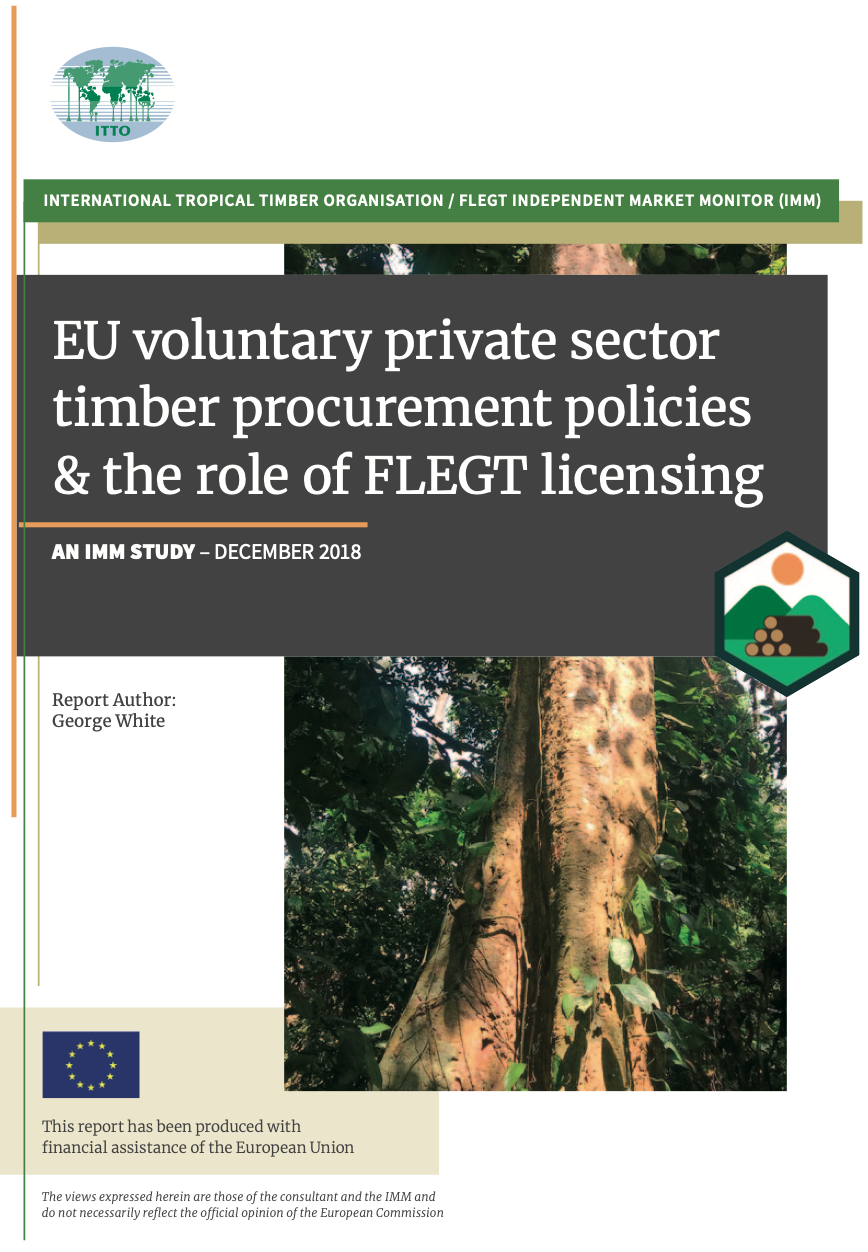EU voluntary private sector timber procurement policies & the role of FLEGT licensing
DOWNLOADS
CATEGORY
Special Study
PUBLISHED DATE
December 2018
AUTHORS
George White
EDITORS
Sarah Storck, Rupert Oliver
DESCRIPTION
EU voluntary private sector timber procurement policies & the role of FLEGT licensing
KEY FINDINGS
Since the early 1990s, private sector actors have been taking steps to ensure that they exclude unsustainable and illegal wood from their supply chains. Private sector procurement policies are now more prominent in the global North and among companies with global reach. With time, these purchasing practices are becoming more widely integrated in corporate business practices and contained within a larger sustainability and/or corporate responsibility policy often covering several other aspects.
Responsible purchasing policies are influenced by a vast array of organisations. The literature review identified over 100 organisations, tools, initiatives, templates
and sets of guidance which might have an influence on a private sector company policy. From this sample 65 potential sources of influence have been assessed. The sample has been assessed in detail to identify attitudes and support for key indicators such as certification, legal compliance, and support for FLEGT licensing.
In addition, the responsible purchasing policies of 20 large EU based companies from across a range of sectors, from retail to timber importing have been assessed in detail
to identify the contents of their policies and the levels of support for FLEGT licensing.
A small number of interviews were conducted with trade associations, timber distributors and civil society organisations to further explore their view on FLEGT licensing.
The analysis indicated that support for FLEGT licensing has yet to reach the levels of forest certification. Over 70% of the influential sources analysed are positive and explicit in their support of some or all forms of forest certification, compared to around 40% supporting FLEGT licensing or the VPA process.
FLEGT licensing, when considered as a brand has less of the advantages of forest certification and for many of the companies and organisations interviewed or analysed remains an unproven (in terms of value or performance on the ground) or often an unobtainable commodity.
The nature of the EU Timber Regulation and its universal application across all EU Member States should ensure that it carries status and meaning in the market regardless of whether a corporate “paper policy” confers some additional status upon it. The reality is though that licensed timber remains very much in a niche and that even those working within the niche have varying levels of support, belief and trust in the “FLEGT brand” and what it actually stands for.
The report makes number of recommendations to boost the value of FLEGT-licensed material within the EU market:
- Communicate relevant results of independent monitoring and evaluation of systems underlying FLEGT-licenses in a timely manner and in a format that is appealing to the private sector.
- Actively engage those civil society organisations and private sector organisations that seek to influence private sector procurement policies.
- Support the efforts of the private sector within FLEGT countries, especially those with active TLAS systems, to promote the benefits and positive impacts of these systems.
- Speed up the introduction of FLEGT-licensed timber supplies from other VPA countries.

